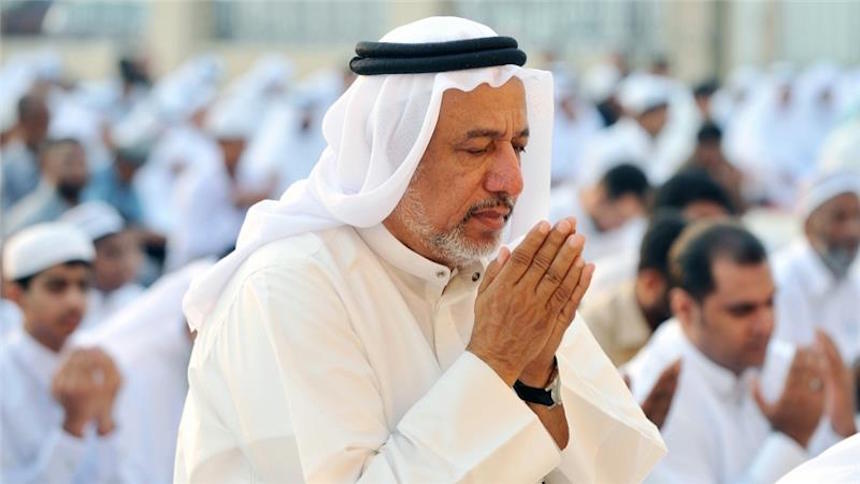Qur’an Cover-to-Cover: Day 9 (“The Criterion”)


I was on a plane flying to Atlanta today, so I’m a little late, but here are my notes for Surah 25.
Surah 25 – “The Criterion” (Al-Furqan)
The title of this chapter is significant. The “criterion” here is identified as the Qur’an itself. This is principal means by which Muslims “distinguish truth from falsehood and right from wrong”. This definitely is in accordance with my experience of speaking with Muslims: everything is viewed through the lense of the Qur’an.
There are are quite a references to other religions in this surah and, I would say, it identifies Christianity in particular. For example, we are told that “[Allah] has not taken a son and has not had a partner in dominion… But they have taken besides Him [Allah] gods”. This seems to be a fairly clear reference to the Christian belief in the Divine Sonship of Jesus. It is also possibly a reference to His mother, Mary, whom we will encounter in later suwar. A little later we are told that on Judgement Day, those false deities will testify against those who worshipped them, saying that none is worthy of worship but Allah. Those who “commit injustice” in this way are guilty of the sin of Shirk and will therefore “taste a great punishment”.
We then hear from the critics of Muhammad. They say that Islam’s prophet simply takes “Legends of the former peoples”, which I’m guessing is a reference to the Old Testament narratives, and possibly the stories found in apocryphal sources. Muhammad fails to fulfil many of the expectations these people have and they ultimately reject him as “a man affected by magic”. One example of their disappointment is that Muhammad is just a man, and they want to know why an angel wasn’t sent down to assist him in warning the people. The Qur’an responds to this saying that there will be a day when they’ll see angels, but it will be Judgement Day and “no good tidings will there be” because on that day they will be thrown into hell.
Muhammad’s critics also ask why the Qur’an wasn’t revealed to him all at once, but I’m afraid that I don’t really understand the answer (“that We may strengthen thereby your heart”).
It is pointed out in the text that Muhammad does not ask for any payment for his message.
As usual, we have a tour through the prophets recognized by Isalm: Moses, Aaron, Noah and the prophets sent to Aad and Thamud. Muhammad is told to “strive against [the unbelievers] with [the Qur’an]”. We’re also treated to the standard affirmations that Allah is God over all creation.
This surah contains two passages (ayah 53 and 54) which I’ve heard cited as proofs of the “scientific miracles” of the Qur’an:
- The exsitence of a non-mixing freshwater sea and salt water sea.
- That man is composed chiefly of water
My favourite part of this chapter begins at ayat 63-68. In these verses, it describes how Muslims behave:
- They “walk upon the earth easily [with dignity but without arrogance]”
- “When the ignorant address them [harshly], they say [words of] peace”
- They spend the night in prayer
- They pray for mercy from Allah
- They spend moderately (“not excessively or sparingly, between that, [justly] moderate”)
- They do not invoke other gods
- They do not kill those “Allah has forbidden to kill, except by right”
- Do not have unlawful sexual intercourse
We are told that to merit Paradise, one must “repent, believe and do righteous work”. Some will merit an elevated portion of Paradise (“awarded the Chamber”).
Questions
Q1. When ayah 2 says “[Allah] has not taken a son and has not had a partner in dominion”, to whom is this referring? Christians?
Q2. What are the “legends of the former peoples” referred to in ayah 5?
Q3. Is the complaint that Muhammad “eats food and walks in the markets” in ayah 7 a complaint that he’s human? Why were they expecting an angelic messenger too? Why in ayah 8 might they think he’d get some heavenly treasure or a garden? Why do they think he’s “affected by magic”?
Q4. We are told in ayah 17 that those “gods” falsely worshipped will testify against the unbelievers on Judgement Day. Is this stricly poetic? After all, these false gods have to actually exist in order to testify…
Q5. I don’t understand the response to the question in ayah 32 “Why was the Qur’an not revealed to him all at once?”. Why is “that We may strengthenn thereby your heart” an answer?
Q6. Were there any prophets between Adam and Noah (ayah 37)?
Q7. Does the Qur’an actually declare Muhammad to be the final messenger? Surah 33:40?
Q8. What is the relevance of ayah 53? Are the “two seas” being used as a metaphor for believers/unbelievers and heaven/hell?
Q9. Is there no Arabic word for “semen”? I’m sure there is… If so, why talk about man being created from “water”?
Q10. Who has “allah forbidden [to be kiled], except by right”
Q11. What counts as “unlawful sexual intercourse”?
Q11. What does someone have to do to be “awarded the Chamber”? Those things described in ayah 74? Are there many different levels of Paradise?
I found this one of the more interesting chapters I’ve read so far, probably because we get to hear the complaints of Muhammad’s critics. I think I also liked this chapter because we start to have the Muslim moral life articulated a little more concretely.